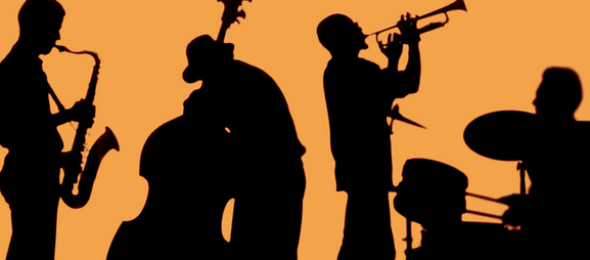Make Some Music With Lawyers
I grew up in the 1960s and 70s where music and art were transforming the world with strong inflections of missionary zeal for disruption and harmony. While it is not completely accurate to compare the work of mediators to musicians, understanding the parallel structures about listening and teamwork help enlighten our future. Music in particular is a metaphor for what mediators actually do with the time they have with the parties. Art is our way of painting a masterpiece out of a blank cloth.
Consider a blues tune. It is almost always written using the standard One, Four and Five chords in a certain specified order. Yet, there are blues tunes written every day that have their own sound and flavor. They adapt to the current state of affairs. Many current blues tunes have hip hop and rap tracks attached to them. Older blues tunes might carry a country rhythm. In the early days of rock and roll, blues became loud and stinging, yet they were still the blues. When comparing mediation to music, I’m not referring to elevator type music that blends in and is simply background noise. This is hard driving, biting riffs with creative melodies that rely on regenerating itself depending on the mood of the group that is playing and the audience that is listening. As each new phrase is developed, the next phrase takes shape.
Dave Davies, the brother of Ray Davies and songwriter of the Kinks, summed it up like this:
“You see, I like to be moved, and certain tones can agitate your emotions in a certain way — give you focus — whereas a pristine and totally on the button sound might be too ordinary. We’re so used to a whole array of sounds – traffic and people arguing and laughing — that when something sounds a little bit off from what you expect, you notice it more. It’s ragged. I tend to call it “ the imperfections that make it sound perfect” — those little nuances that a lot of people would say, “Oh, redo that” or “do it again.” A lot of musicians have such a fear of getting it wrong that they ruin the whole thing. It has to do with confidence, rather than if there’s a right way or a wrong way. If the confidence and the intent are pure your paying will sound confident and pure. That’s how I feel.” Playing, performing and producing music are a lot like painting, I think. The brush stroke moves slightly and you end up with something you didn’t intend. “Wow, what’s that? Oh, I’ll keep that bit. It’s nice.” I do that with music. The more anal you get — the more you want to get to a point of precision – it becomes something that I don’t believe is real art. Art has to go a bit askew. It has to be a bit wrong —whatever that word means —for it to be right.”
Looking into the crystal ball of the future of mediation, I can’t help but learn from artists and musicians as they struggle to create sounds and pictures out of imperfections. It is this imperfection that drove me to find ways to adapt the elegance of mediation to the complexity of the legal system. The economics of the legal system has pushed the mediation movement away from elegance and into a spiral of creative compromise. For the future to exist, the spiral must be slowed down such that mediators recognize the importance of economic factors, while subtly encouraging the human side into the equation. My own personal journey has found a way to slow down this spiral by gravitating to the techniques used in improvisational music and theater.
Using Improv In Mediation
Improvisational music and theatre are probably more akin to the methods and strategies of accomplished mediators. The foundation of improvisation is based on teamwork, listening for the unstated and knowing that mistakes are part of the rhythm and beat, and that they should be embraced, not put down. Jazz musicians are particularly adept at learning the basic building blocks of songs such as chords and rhythms, and applying those building blocks in their own repertoire of responses. They do exactly what mediators do — they read the mood of the room, listen to each other and start playing.
This musical approach is precisely what is missing in many of the current approaches to the practice of mediation. Making something up on the spur of the moment is antithetical to what lawyers (and mediators) are taught. Theatre actors are not constrained by formulas, scripts or structure. They operate in a world where reactions to stories that are unfolding are immediate. Mediators can do the same thing as musicians who are riffing with each other. Like musicians and actors, mediators rework pre-composed pieces such as great stories in relation to unanticipated ideas. This means we are prepared with ideas, examples and questions that keep the music, or in our case, the negotiation moving forward.
Stay tuned for Part IX: The Arguments With Myself About The Future
Read Part I: Introduction
Read Part II: History
Read Part IV: Adoption by the Courts
Read Part V: The Drift of Mediation
Read Part VI: Adapting to the Adversarial System
Read Part VII: What Approach Actually Works?
Read Part IX: Arguments With Myself About The Future
Read Part X: A Practical View of the Future














